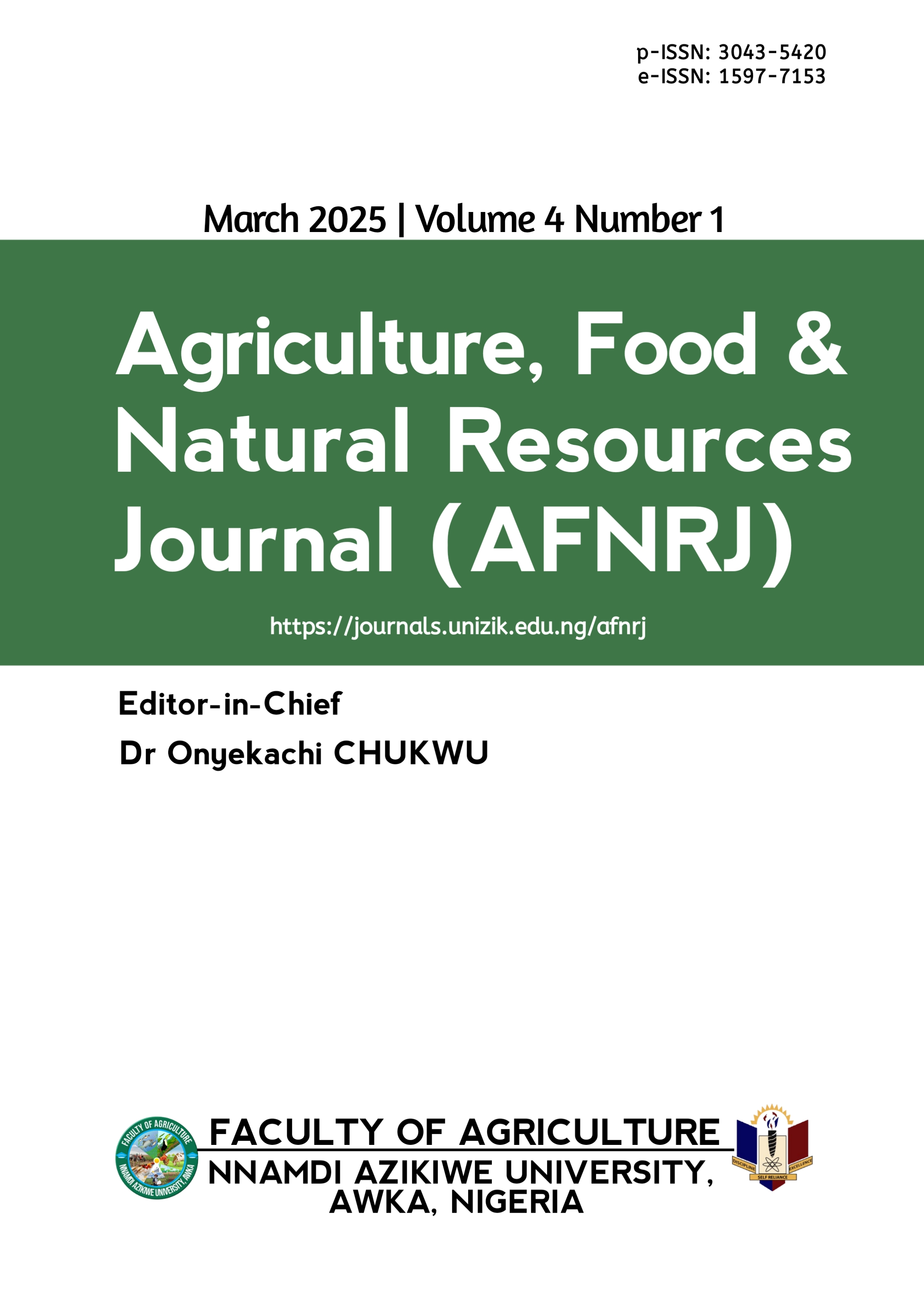Emerging climate-smart-agriculture strategies: Determinants to adoption by Nigerian arable crop farmers
DOI:
https://doi.org/10.5281/zenodo.15113265Keywords:
Anthropogenic, Arable crop farmers, Climate action, Climate change adaptation, SDG 13Abstract
Climate change is a major threat to Nigeria’s food security because of its human population. This research assessed the determinants of Nigerian arable crop farmers adopting emerging climate-smart agriculture strategies. Specifically, it investigated the respondents' awareness of signs of climate change, identified the human contributions to climate change, its effect on agricultural production, and the determinants of respondents' adoption of emerging climate-smart agricultural strategies. Respondents were 120 arable crop farmers randomly selected from 4 communities in Akinyele LGA, Oyo State, Nigeria. Primary data collected with a structured questionnaire was analysed using descriptive statistics and binary logistic regression. Findings indicate respondents had experienced signs of climate change, notably poorer yield (mean=4.15), unpredictable weather patterns (mean=3.95), and intense heat (mean=3.88). Respondents strongly agreed on human contributions to climate change such as deforestation, agrochemical use, continuous cropping, and overgrazing. Challenges posed by climate change to production identified by respondents were reduced yield, erosion, pest infestation, poor soil moisture, and decreased work hours. The most significant determinant of the adoption of the emerging climate-smart agricultural strategies was agronomic strategies (p = 0.008), while environmental strategies were marginal determinants (p = 0.072). The research concluded that the respondents recognized signs of climate change and were aware of humans’ contributions to it and its consequences on their production. Their choice of strategy was significantly determined by the agronomic strategy. The research recommends integrating indigenous and modern emerging climate-smart agricultural strategies and bolstering farmers’ awareness, technological expertise, and financial resources through comprehensive awareness and training programs.
Downloads
Published
Issue
Section
License

This work is licensed under a Creative Commons Attribution 4.0 International License.
which permits unrestricted use, distribution, and reproduction in any medium, provided the original author and source are credited.
Authors retain the copyright of their published work in the AFNRJ.





